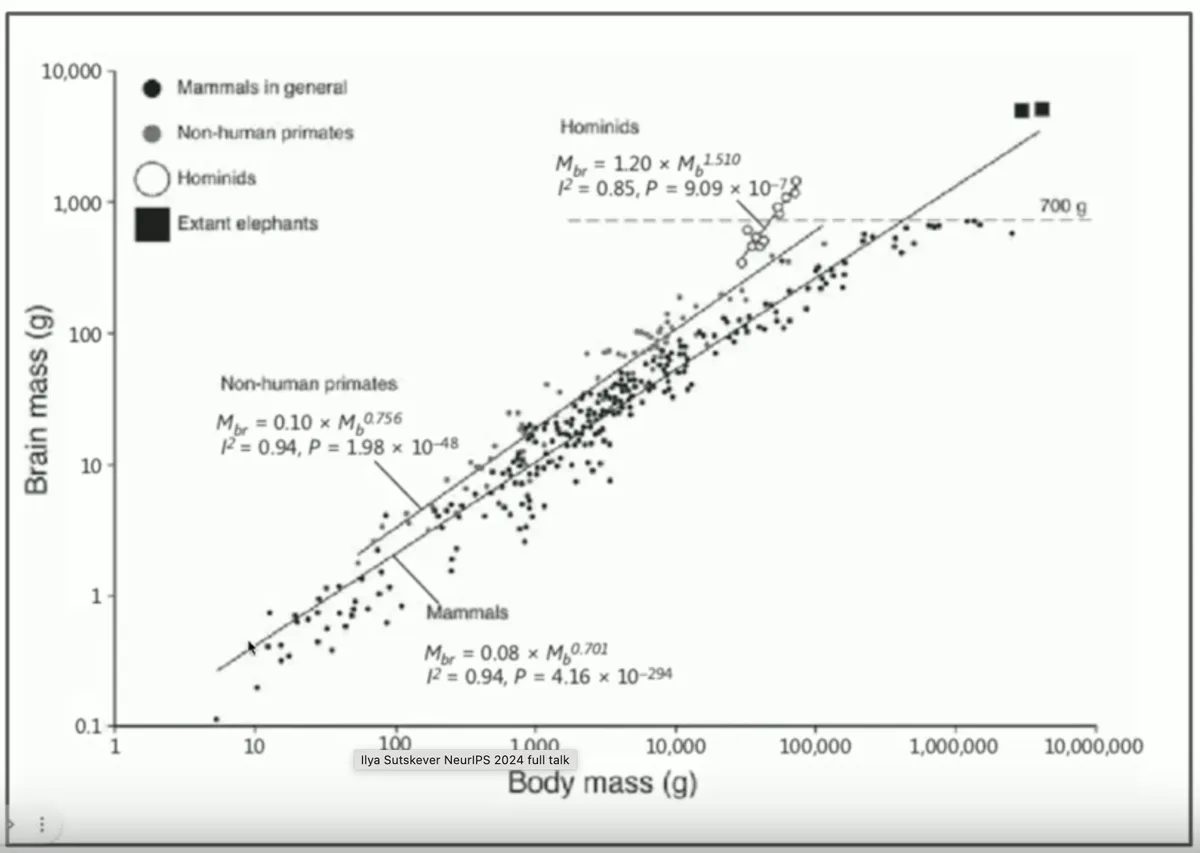Superintelligence Will Happen: Ilya Sutskever's Insights on the Future of AI
In a recent NeurIPS 2024 talk, Ilya Sutskever, one of the most influential figures in artificial intelligence, shared his fascinating perspectives on the current state and future of AI. Looking back at the field's evolution over the past decade while gazing into its future, Sutskever outlined several key insights about where AI is headed.

The End of Traditional Pre-training
One of Sutskever's most striking predictions is that the current era of pre-training will come to an end. While computing power continues to grow through better hardware and algorithms, we face a fundamental limitation: data scarcity. As he memorably put it, "data is the fossil fuel of AI." With only one internet worth of data available, we've essentially reached "peak data." This limitation will force the field to evolve beyond traditional pre-training approaches.

The Next Frontier
Sutskever highlighted several promising directions for AI's evolution:
Agents
While somewhat vague, there's a growing consensus that agent-based systems represent a crucial next step in AI development. It could mean different things, but I see it as AI will become an autonomous tool of reasoning, solving and proposing ideas and solutions.
Synthetic Data
As natural data becomes scarce, finding ways to generate and utilize synthetic data will become increasingly important.
Inference-time Compute
New approaches to computation during inference, as demonstrated by models like O1, may offer alternative paths forward.
The Path to Superintelligence
Perhaps the most thought-provoking part of Sutskever's talk was his discussion of superintelligence, which he sees as the field's inevitable destination. He emphasized that future AI systems will be qualitatively different from current ones in several key ways:
True Agency: Unlike current systems, which are only "very slightly agentic," future AI will possess genuine agency (autonomous).
Genuine Reasoning: Future systems will demonstrate true reasoning capabilities, making them increasingly unpredictable as their reasoning depth increases.
Better Generalization: They will understand concepts from limited data and avoid the confusion that plagues current models.
Self-awareness: Sutskever suggests this will emerge naturally as it's useful for world modeling.
The Unpredictability Factor
A particularly interesting point Sutskever emphasized is that increased reasoning capabilities lead to greater unpredictability. He used chess AI as an example, noting how top chess programs make moves that even grandmasters find surprising. This unpredictability will be a defining characteristic of future AI systems, presenting both opportunities and challenges.
Scaling Pattern Will Change
During his talk, Sutskever highlighted a remarkable discovery: while most mammals follow a consistent brain-to-body mass ratio, hominids (our early human ancestors) broke this pattern with a distinctly different scaling slope. This deviation in nature serves as a powerful metaphor for AI's future: just as evolution found a new scaling pattern that led to higher intelligence in hominids, AI might discover fundamentally different scaling approaches beyond our current pre-training paradigm. While today's neural networks only loosely mimic biological neurons, this evolutionary precedent suggests that dramatic leaps in AI scaling patterns are both possible and perhaps necessary for achieving superintelligence.

Limitations of Current Systems
Sutskever acknowledged the current limitations of large language models, particularly in areas like out-of-distribution generalization. While these models can perform impressively on many tasks, they still don't match human-level generalization abilities. However, he noted that our standards for what constitutes "generalization" have dramatically increased over time.
Looking Ahead
Sutskever maintained a careful balance between optimism about AI's potential and acknowledgment of its current limitations. While he's confident that superintelligent AI will emerge, he deliberately avoided precise predictions about timing or specific implementation details.
The talk concluded with an important reminder: we're witnessing unprecedented progress in AI, transforming from systems that could barely function to ones that can engage in complex dialogue and reasoning. However, the most significant changes still lie ahead, as we move toward systems with true reasoning capabilities and genuine agency.
This vision of AI's future suggests a field on the cusp of dramatic transformation, moving beyond current paradigms toward something qualitatively different. While the exact path remains unclear, Sutskever's insights provide valuable guideposts for understanding where we might be headed and the challenges we'll need to address along the way.